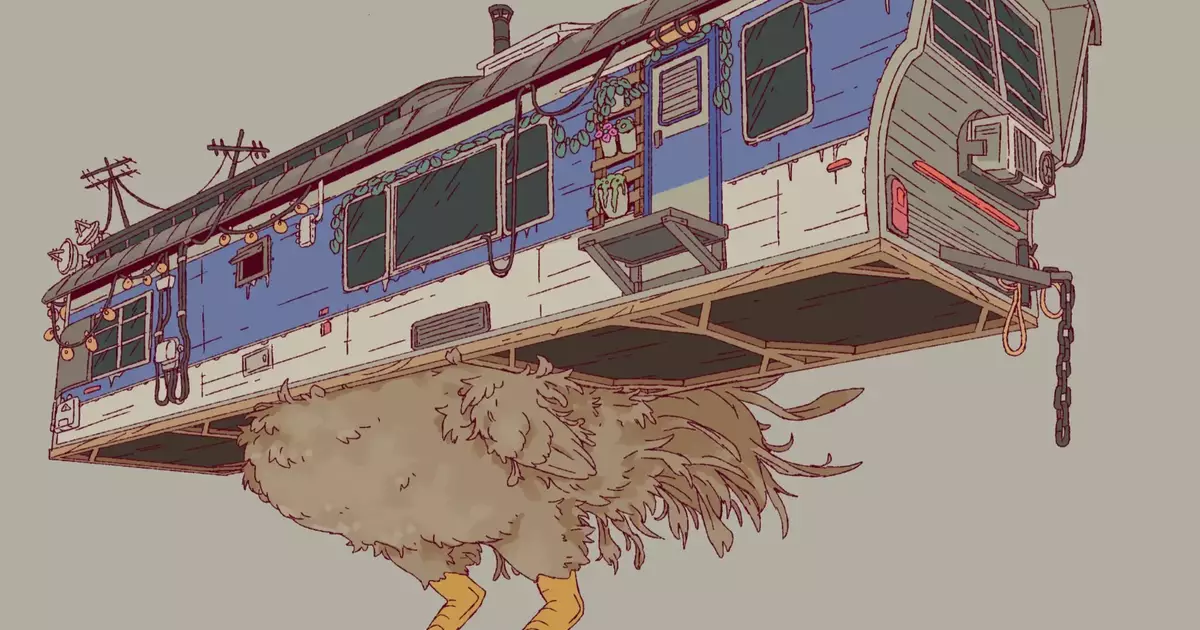In the landscape of interactive storytelling, few games have captured the precarious balance between playfulness and tragedy as effectively as *What Remains of Edith Finch*. This haunting collection of narratives invites players to traverse the lives of a cursed family residing in an eerily fantastical treehouse. Each short story within the game acts as a kaleidoscopic window into despair, rife with inventive mechanics and experimental genres. The very fabric of the game is interwoven with moments that swing wildly from the enchanting to the grotesque, showcasing the developer’s affinity for unconventional storytelling. Following this intricate thread, Giant Sparrow’s next endeavor promises to delve even deeper into the marvels and absurdities of existence through a lens that is beautifully strange.
Though the project, working under the title “Heron”, has yet to be formally unveiled, intriguing snippets have emerged from founder Ian Dallas’ discussions with media outlets. Dallas emphasizes the intention to create a world that reflects the bizarre intricacies of organic life. Drawing from a unique tapestry of inspiration—from the poignant landscapes of *Ico* to the fanciful escapes of *Spirited Away*—the game encapsulates not only a journey through nature but a highly imaginative interpretation of it. Dallas aims to transcend the limitations inherent in the traditional nature documentary format, which he perceives as lacking depth and dynamism, often reducing the complexity of life to brief, superficial glimpses.
The decision to create fantastical creatures rather than adhering strictly to the naturalistic realm is a deliberate choice that entails inventiveness. This approach offers a vast canvas on which Giant Sparrow can unfurl its creativity, allowing quirky elements—like chicken-legged houses—more than mere comedic value; they house a deeper commentary on the uncanny beauty of our world.
Dallas’s keen observations have led him to explore an uncomfortable yet fascinating truth: biology, when examined closely, reveals unsettling narratives. For instance, the intricate processes of a butterfly’s reproduction cycle emerge as odd and repugnant when compared to our everyday experiences. In this intersection of horror and whimsy, there lies a fertile ground for exploration. The player is invited to encounter animals in visceral ways, sparking a dual sense of fascination and revulsion. This exploration echoes the works of authors like Jeff VanderMeer, who weave seamlessly between the alien and familiar, crafting narratives that challenge our perceptions of nature.
A specific instance mentioned by Dallas relates to attempting a comical interaction with a giraffe, underscoring how these interactions will push boundaries—making the player think twice about their actions and consequences. The core philosophy of the game as a “more exploratory and playful world” suggests a departure from traditional game structures, allowing creativity to flourish in unpredictable ways. This deviation signifies an urge to reshape the parameters of gameplay itself, elevating it beyond a structured chessboard where moves are predestined.
While the creative vision behind “Heron” is enticing, it also provokes critical questions about representation and interaction. How will the game illustrate nonhuman characters? Will animals be mere puppets in a players’ journey, or will they possess agency that adds depth to their portrayal? It invites contemplation on how biological studies are portrayed and simplified in conventional narratives. Instead of sidelining these contemplative elements, “Heron” may strive to centralize them, inviting players to engage with profound questions about life, existence, and the values we assign to nonhuman entities.
Furthermore, there’s an underlying sense that this isn’t merely a fantastical take on nature, but a prompt to viewers and players alike to scrutinize their views. What is the nature of our reality? How does our comprehension of biology shape our relationships with other forms of life? The artistic ambition of Giant Sparrow raises a delicate interplay of thoughtfulness where even the most bizarre elements serve as reminders of the terrors and wonders surrounding us.
Ultimately, Giant Sparrow’s forthcoming title holds the promise of a rich emotional tapestry—a blend of humor, horror, and a deeper understanding of the natural world. In embracing both the grotesque and the whimsical, the developers have set out to engage players in a way that elicits genuine reflection on the nature of life. The potential for a beautifully bizarre narrative experience lies at the heart of “Heron,” promising an adventure filled with laughter, contemplation, and perhaps a touch of existential dread, ensuring that it resonates in the vast universe of gaming for many years to come.


Leave a Reply